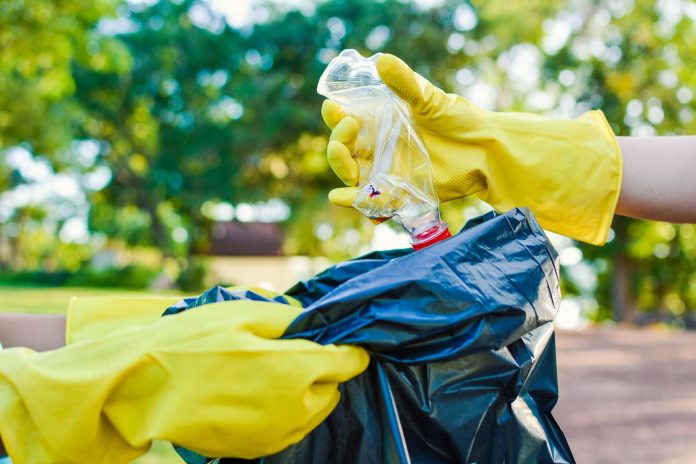SALINAS VALLEY — A virtual meeting was recently held to discuss Waste Management’s SmartTruck program and how it fits into compliance with new organics and recycling laws.
Residents were able to learn the reasons why collection services have undergone changes, which include closer monitoring of their discarded waste with the potential for fines, during the April 21 community meeting.
“When we look at how our communities are growing and the need that we have to meet a lot of the new expectations from the state and also to take care of our environment, there’s a lot of challenges that we face together as a community,” said Chris Lopez, county supervisor for the third district, which includes South Monterey County.
Mandy Brooks, recycling coordinator for Salinas Valley Recycles, described the state mandate SB 1383, the Short-Lived Climate Pollutants and Methane Emissions Reduction Act, which requires waste requirements and how it impacts curbside collection.
“It focuses on all generators, residential, businesses and schools, and it really is the most ambitious disposal reduction mandate since the passage of the Integrated Waste Management Act of 1989 … that act actually established our current curbside recycling programs that we have today,” Brooks said. “It requires the reduction of organic waste disposal by 50% by 2020 and 75% by 2025 (from 2014 levels).”
The act also requires an increase in edible food recovery by 20%.
“Achieving these levels of diversion effectively eliminates the disposal of any organic materials going into landfills in California,” Brooks said.
She explained the reasoning being that California throws away large amounts of organic materials, including food.
“SB 1383 is a big deal, it’s really going to change how we interact,” Lopez said.
Beginning in 2022, the regulations will take effect and the state will take enforcement actions. The responsibility for making sure everyone follows the new requirements falls on local jurisdictions, the cities and counties.
“The jurisdictions are required to provide organic waste collection services to all the businesses and residents, and establish edible food recovery programs for all commercial edible food generators,” Brooks said.
Jurisdictions are also required to procure a certain level of compost or mulch products along with recycled paper products, which means they need to plan and secure access for recycling and edible food recovery capacity before the enforcement is implemented. That means monitoring compliance and conducting enforcement, strengthened by passing ordinances ahead of time to make items enforceable and meet the requirements.
One of the monitoring efforts is the new SmartTruck technology, which films and takes photographs of waste collection.
“Every stop is linked to a WM customer, every cart lift and its contents are captured on camera,” said Felipe Melchor, district manager for Northern California and Nevada, describing how the process works. “Images are audited for overages and contamination and notification and education are sent to the customer.”
Melchor said trained auditors review still photos taken prior to the lifts of waste carts and video footage of the contents being dumped. They’re looking for both overage on filling the carts too high with waste as well as contaminants, which shouldn’t be in certain bins.
“Overage fees apply to trash, recycling and organic waste,” Melchor said. “Notifications to the customer include the photo of the incident.”
He explained the top contaminant that is seen in the recycling material is about 85% plastic bags being thrown in.
“It makes it extremely difficult for the equipment and the folks working on the processing line and we don’t want it in the material,” Melchor said.
In the green bins, which are supposed to be for organic waste, such as yard clippings, Melchor said the largest contaminant is extra trash that didn’t fit in the trashcan.
Kristin Skromme, public sector manager, said the contamination was hovering around 22% in 2019 and it jumped up to 30% in 2020.
Skromme said the new process of fines and overage charges was preceded by information postcards sent to customers in November. She recommended keeping one’s lids closed all the way and keeping plastic bags out of the recycle bins. She also had a tip for avoiding other people putting extra items into one’s trash.
“If you put your carts out at night, I highly encourage you to bring them out in the morning,” Skromme said. “You might be the alarm clock for your neighbors, but it does help reduce the chance that you’ll be illegally dumped into.”
Anyone with a SmartTruck issue should contact WM’s customer service at 1-800-321-8226 or visit WhatGoesWhere.info.














